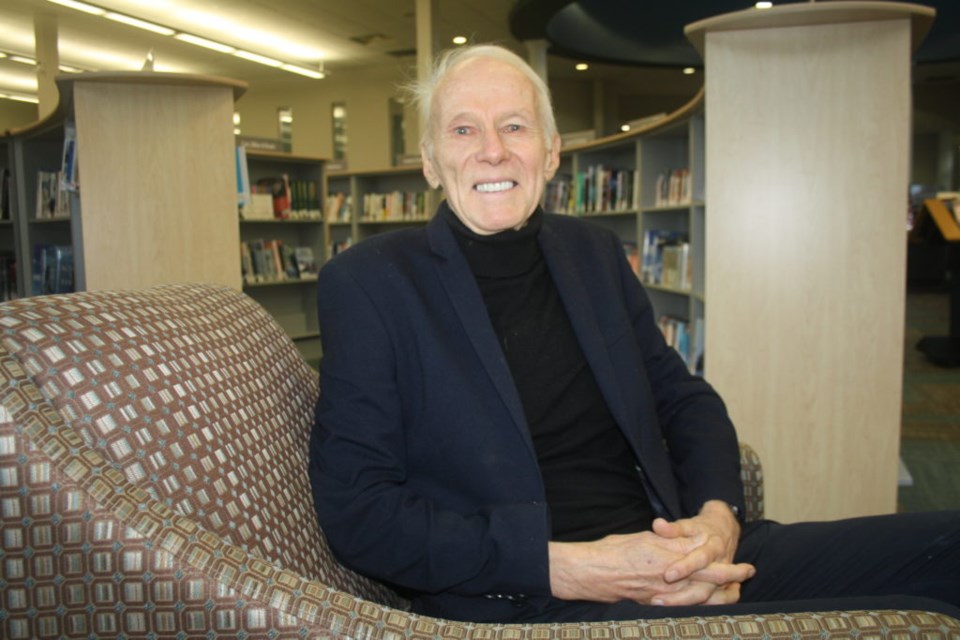
When David and Valmai Elkins moved to Niagara-on-the-Lake from Montreal, they enjoyed much of what the town has to offer, including science seminars, InfoHealth sessions, and last year’s series at the NOTL Public Library on Nobel Prize winners, organized by Dr. Bill Brown.
This year, they have become personally involved: David presented the session on the economics prize two weeks ago, and on Tuesday, Dec. 3, will talk about the Peace Prize.
Valmai, author of fiction and non-fiction, including books on her work in the 1970s that changed the way parents and the medical profession approached birthing, will speak of the 2019 Nobel Prize for literature, which followed a year of no prize for literature being awarded after a sex scandal involving the husband of one of the judges, which included the possibility of leaks of potential winners in advance.
David, former publisher of the Doctor’s Review, a highly-respected publication he describes a “travel magazine for doctors,” says he found Brown’s series on Nobel Prize winners important and interesting, because although “we hear a lot about the winners, we often don’t know what they did. And sometimes it’s hard to get your mind around what they did, especially for the science awards.”
This year’s economic prize was different, in that its implications are easy to understand.
It “recognized work which, over the last 20 years, has reduced global poverty; improved the health of millions of children; and found ways to put half the world’s kids in school,” he said.
The prize went to Massachusetts Institute of Technology economists Abhijit Banerjee, his spouse Esther Duflo and Michael Kremer, says David, for work they did stretching back to the 1990s.
“They were among the first to leave their academic desks and get out into the field, now a common practice. The trio developed randomized controlled trials, similar to those used by drug companies to test new medicines. They used them to find practical solutions to intractable world problems.”
These included the best way to raise inoculations rates; to keep both teachers and students in school; and to motivate farmers to use progressive methods to increase yields, he says.
“The approach has been replicated by researchers in thousands of trials all over the planet. Of note, Ms. Duflo, a highly articulate feminist, is only the second women ever awarded the prize and, at 46, also the youngest.”
The Peace Prize, of which David will speak Tuesday, went to the 43-year-old Prime Minster Abiy Ahmed of Ethiopia, for resolving a border conflict between Ethiopia and Eritrea that had festered for more than 30 years.
In April 2018, says David, Ahmed “reached out to Eritrea President Isaias Afwerki and they agreed to accept unconditional arbitration to settle a decades-long boundary dispute. At home he dismissed corrupt officials, freed journalists and political prisoners, and set up a gender-balanced cabinet.”
Unfortunately, as David will explain in more detail, “things have since taken a turn for the worse. In October, Jawar Mohammed, a high-powered media-mogul, who had helped bring Ahmed to power, accused government security forces of attacks against him. In response, he set up a new political party to oppose Ahmed in a national election scheduled for next May.”
To add to the prize winner’s woes, he says, in October ethnic violence, which David describes as “trench warfare,” broke out and added to more than three million internally displaced people, the highest in the world.
This turn of events is entirely separate from the reasons Ahmed won the prize, says David, and doesn’t diminish the value of the signing of an important treaty after so many years — Ahmed “deserves credit for what he accomplished, no question.”
It does, however, reinforce the notion that “peace prize winners are often controversial,” he says.
Learn more about Ahmed and his work at the NOTL Public Library, Tuesday, Dec. 3 at 2 p.m., and about the Nobel Prize for Literature with Valmai Elkins Tuesday, Dec. 10, also at the library at 2 p.m.